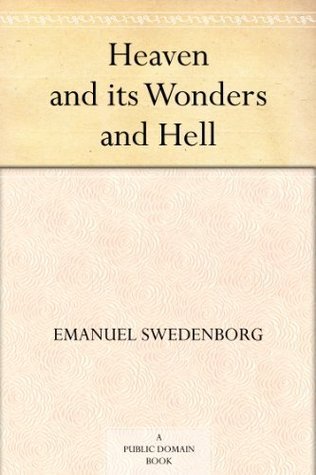What do you think?
Rate this book


362 pages, Kindle Edition
First published January 1, 1758
There are hells everywhere. They are under the mountains and hills and cliffs and under the plains and valleys. The openings or gates to the hells that are under the mountains and hills and cliffs look at first sight like crevices or fissures in the rocks. Some of them are quite broad and open, some narrow and confined, full of rough places. All of them seem dim and gloomy when you look in, although the hellish spirits who live there have the kind of illumination you get from glowing coals. Their eyes are adjusted to the reception of this kind of light. This is because when they were living in the world they were in darkness about divine truths owing to their denial of them. . . . The entrances or gates to the hells that are under the plains and valleys have different forms. Some of them are like the ones under the mountains, hills, and cliffs; some of them are like caves and caverns; some are like large chasms and quagmires, some like swamps; and some like stagnant ponds. All of them are covered over and are visible only when evil spirits are being cast in there from the world of spirits. . . . In some hells you can see what look like the ruins of houses and cities after a fire, where hellish spirits live and hide out. In the milder hells you can see crude huts, sometimes grouped in something like a city, with alleyways and streets. There are also dark forests where hellish spirits roam like wild beasts; and there are underground caves there where they flee when they are being threatened by others. Then there are desert areas where everything is barren and sandy, with rugged cliffs here and there. . . . As to the location of specific hells, no one can know this, not even an angel in heaven -- only the Lord. Roughly, though, their location is recognized by the quarter where they are found. Like the heavens, the hells are differentiated into regions; and in the spiritual world, regions are marked off according to loves because all regions in heaven start from the Lord as the sun, who is the east. So since the hells are the opposite of the heavens, their regions start from the opposite direction, the west."